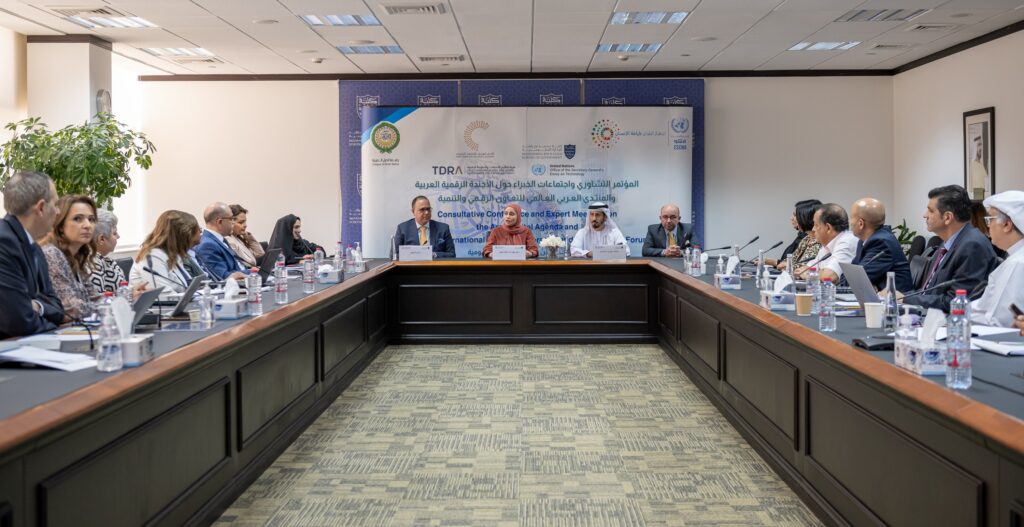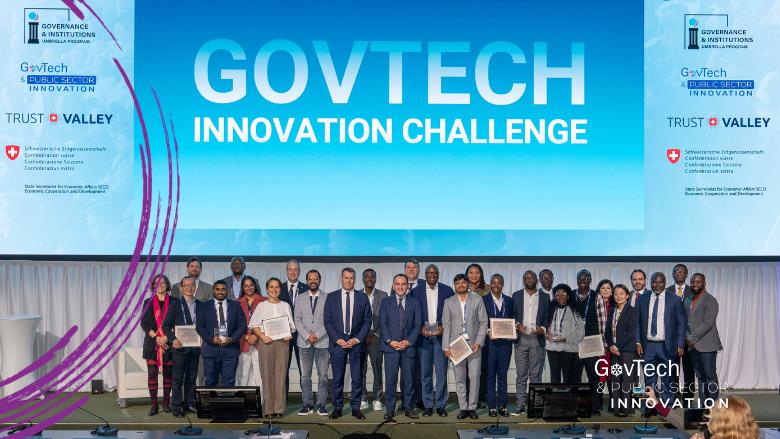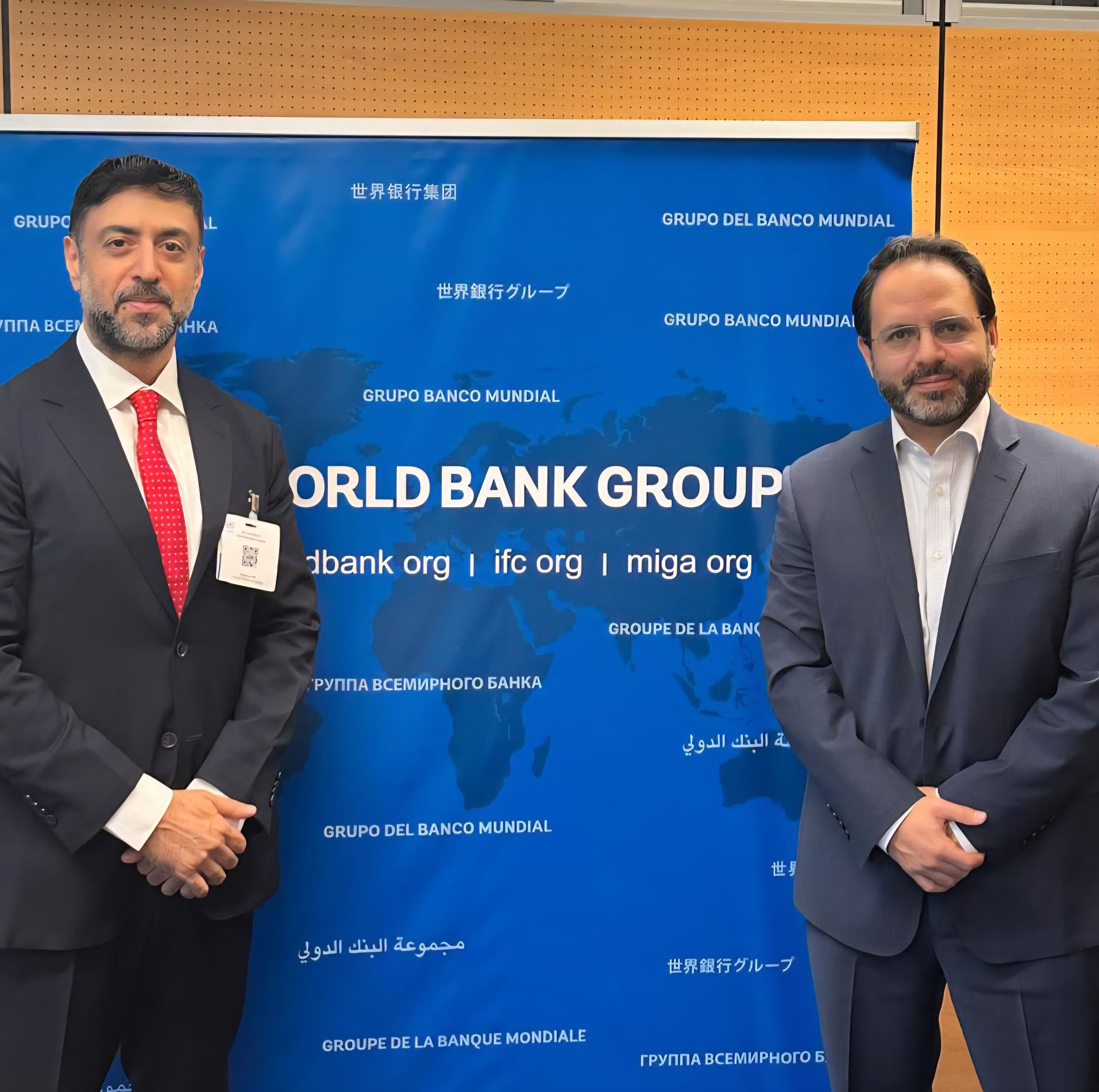Dubai, October 27, 2020 (WAM) — Her Excellency Ohood bint Khalfan Al Roumi, Minister of State for Government Development and the Future and Chairperson of the Higher Committee for Government Digital Transformation, affirmed during a meeting with 45 Arab government officials, representatives of regional and international organizations, and digital experts that the Arab Digital Agenda, being developed in partnership between the United Nations Economic and Social Commission for Western Asia (ESCWA) and the League of Arab States, represents a major and important project to promote government digital transformation in the Arab region. This came during a meeting with members of the joint technical committee for the project to develop and activate the Arab Digital Agenda. The meeting was part of the consultative conference and expert meetings on the digital agenda and the Arab International Forum for Digital Cooperation and Development, which were organized in Dubai in partnership between the Telecommunications Regulatory Authority (TRA) and the UAE Digital Government, the Arab Federation for Digital Economy, and the Mohammed bin Rashid School of Government, in cooperation with the Office of the UN Secretary-General’s Special Envoy for Technology in New York. Ohood Al Roumi emphasized that the world is witnessing an unprecedented acceleration in the pace of change, driven by digital technology and its innovative solutions, which have condensed decades of development into a few years and are expected to accelerate further in the future. She emphasized that it is crucial for governments to keep pace with this development to address challenges and transform them into opportunities that enhance performance and positively impact societies. She highlighted the importance of developing and activating the digital agenda from a comprehensive perspective across all areas of government work, whether in policies, legislation, business models, or even organizational structures. The Chairperson of the Higher Committee for Government Digital Transformation stated that the UAE government believes that achieving digital transformation requires developing new work methodologies and building a government digital mindset that invests in the opportunities of the digital world and transforms them into essential elements of the work system. This contributes to the transition from digitizing business to adopting digital as a fundamental element in government thinking and design. She added that the changes and developments the world is experiencing pose many challenges to digital transformation initiatives and projects, requiring government policymakers in the Arab region to work on initiatives and projects to develop the digital capabilities and skills of government employees. She pointed out that accelerating digital transformation requires strengthening cooperation and purposeful partnerships between governments across the region, and expanding the scope of digital partnerships with technology leaders in the private sector. Ohood Al Roumi praised the role of the United Nations Economic and Social Commission for Western Asia (ESCWA) and the League of Arab States in promoting efforts to develop the Arab Digital Agenda, which will represent a supportive element for Arab countries in accelerating digital transformation processes. She thanked the Telecommunications Regulatory Authority, the Digital Government, and the Mohammed bin Rashid School of Government for their effective partnerships with Arab and international organizations in supporting efforts to accelerate digital transformation. For his part, His Excellency Dr. Ali bin Sebaa Al Marri, Executive President of the Mohammed bin Rashid School of Government, said: “The School will continue to be a regional and global platform for showcasing the most prominent solutions to various challenges. The School’s hosting of the Consultative Conference and Expert Meetings on the Arab Digital Agenda and the Arab Global Forum for Digital Cooperation and Development reflects this direction, which we are working to consolidate day after day to enhance the School’s role and contribution to policy formulation and creating a framework for cooperation between various stakeholders in various fields, with the aim of improving government performance and the growth of various sectors.” His Excellency added: “We are pleased today with the visit of Her Excellency Ohood bint Khalfan Al Roumi, Minister of State for Government Development and the Future and Chairperson of the Higher Committee for Government Digital Transformation, to the Consultative Conference at the Mohammed bin Rashid School of Government. We are confident that the conference will be a starting point towards enhancing digital cooperation for further development among Arab countries in the coming period.” Dr. Ayman El Sherbini, Head of the ICT Policies Section at the United Nations Economic and Social Commission for Western Asia (ESCWA), said: “The Arab Digital Agenda, led by ESCWA and the League of Arab States, in partnership with organizations The United Nations and the Arab League are establishing a long-term joint Arab framework to advance digital development in general, with all its components, including digital transformation, the digital economy, digital infrastructure, digital governance, and digital media. This includes digital advancement across all economic and service sectors in Arab countries. This is achieved through a unique model centered on unifying the vision for digital development at the Arab level, and setting goals and objectives for each of the agenda’s axes to be achieved within a specific timeframe.
He added: “We thank the UAE government and all those involved in organizing the consultative conference and expert meetings on the Arab Digital Agenda and the Arab International Forum for Digital Cooperation and Development, represented by the Mohammed bin Rashid School of Government, the Telecommunications Regulatory Authority, the Digital Government, and our partners in the Arab Federation for Digital Economy. We extend our sincere thanks to them for their efforts in making this event a success. We look forward to organizing more activities in the coming period to implement the Arab Digital Agenda and achieve further development for the entire region through joint cooperation.” It’s worth noting that the consultative conference and expert meetings addressed several tracks interconnected with the Arab Digital Agenda. Its agenda included a preparatory meeting for the second session of the Arab International Forum for Digital Cooperation and Development 2023, in addition to several events aimed at drafting a version of the Arab Digital Agenda 2023-2033. This will be submitted for approval by the Council of Arab Ministers of Communications and Information at its next session in late December 2022, and subsequently launched for implementation in the first quarter of 2023. The conference and forum witnessed broad participation from government officials in Arab ministries and agencies concerned with the communications and digital transformation sector, a select group of Arab and international experts in the digital field, representatives of regional and international organizations, global companies, the global technology community, and the ESCWA and Arab League teams overseeing the preparation of the Arab Digital Agenda.











